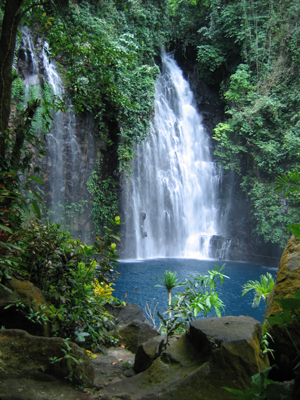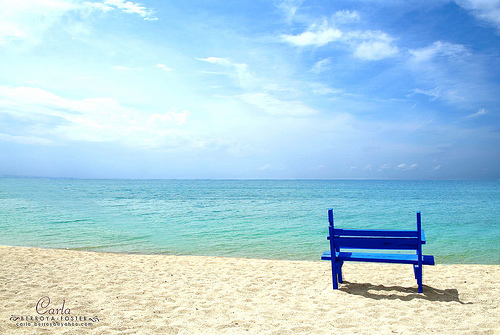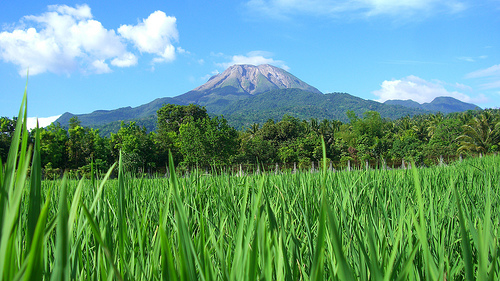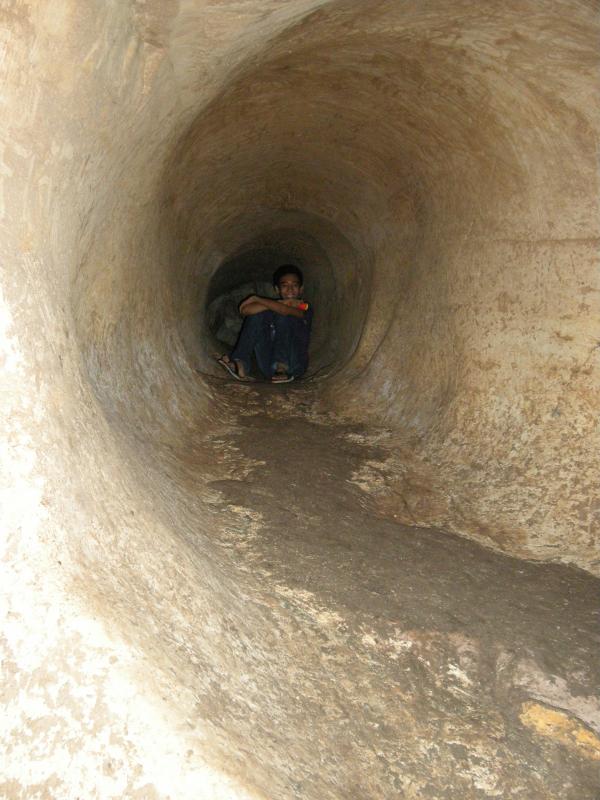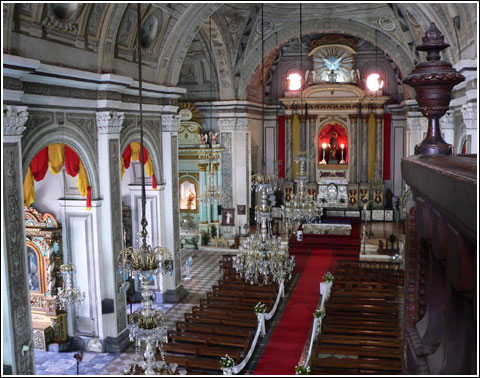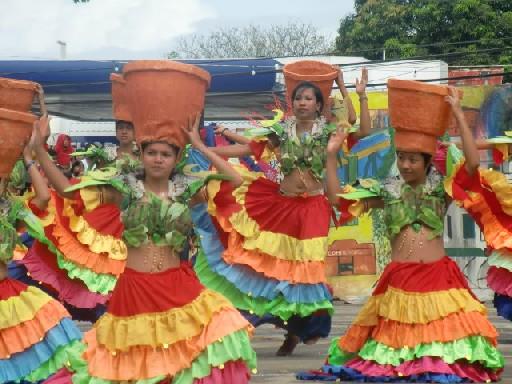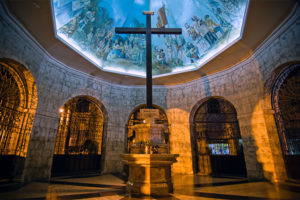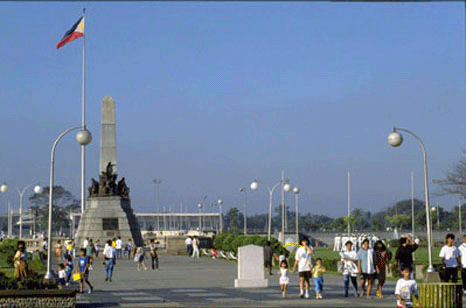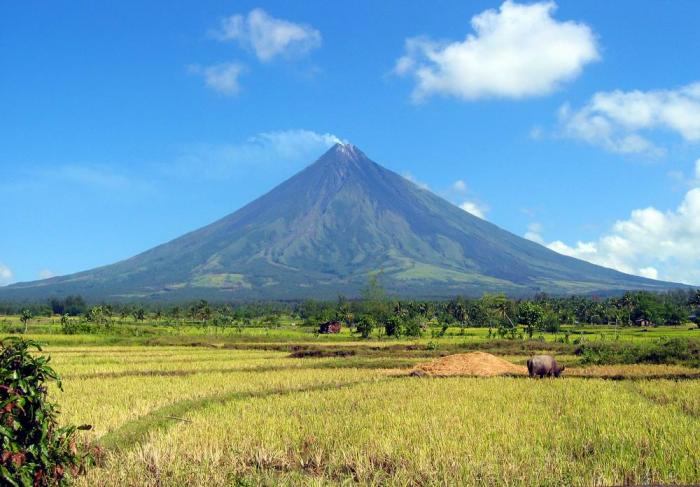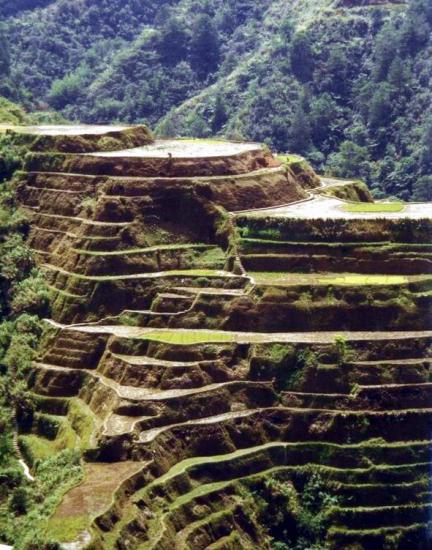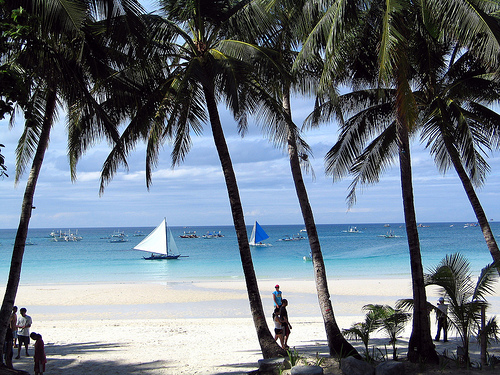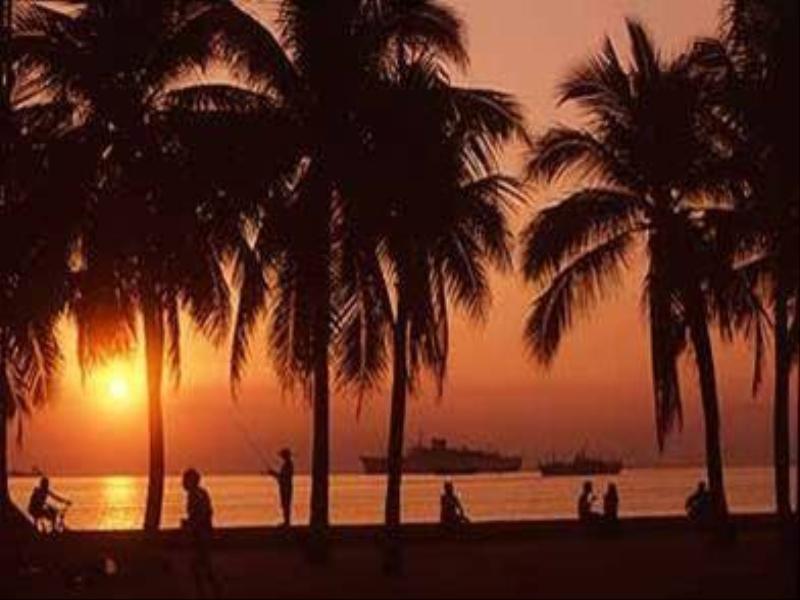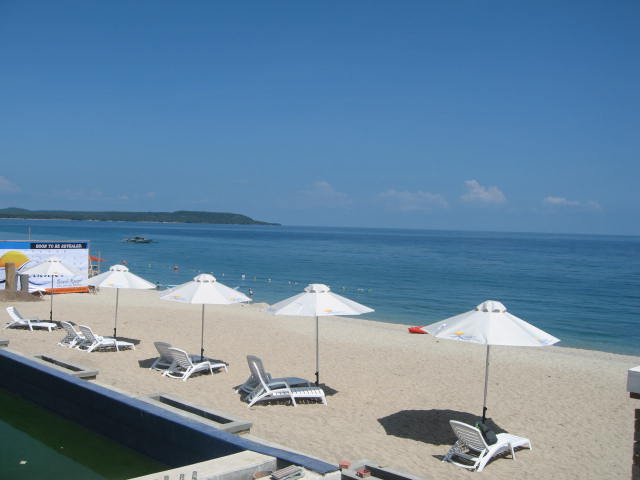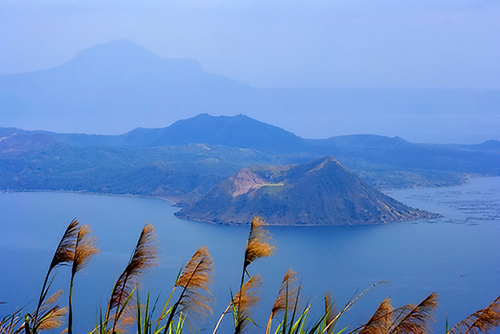
MAGELLAN CROSS
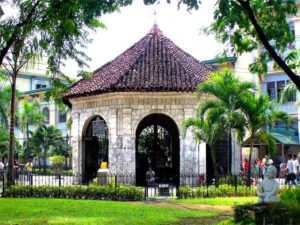 Photo from: http://guide-cebu.com/attraction/magellans-cross/
Photo from: http://guide-cebu.com/attraction/magellans-cross/
Magellan’s cross still remains to be a part of the history of Cebu. This cross is believed to have been planted by the Spaniards and Portuguese conquerors, as ordered by Ferdinand Magellan, who came here in the Philippines in 1521. It also marked the arrival of Christianity in the Philippines.
This cross is located in downtown Cebu City, specifically in Magallanes Street, just very close to the Sto. Niño Church (which is also very famous because of the Sto. Niño, the patron being celebrated during Sinulog festival). It is being housed in a chapel. The original cross is now encased in the wooden cross inside the chapel for protection as it was believed to be miraculous and people kept on chipping away its parts. Read More: https://www.cebucitytour.com/cebu-magellans-cross/
Magellan’s Cross is displayed in a structure located between the Basilica Minore del Sto. Niño and City Hall in Magallanes (Spanish translation of Magellan’s name) Street. It is open even on weekends and holidays, and there is no entry charge. A mural showing the first mass and the conversion of Sugbuanons to Christianity has been painted on the ceiling of the pavilion.
The cross is a popular tourist attraction together with other Cebu historical landmarks like the Fort San Pedro, built by the Spanish conquistador who came some 40 years after Magellan, and the Basilica Minore del Sto. Niño, considered the oldest church in the Philippines. Read More: http://mycebu.ph/article/magellan%E2%80%99s-cross-depicts-cebuano-conversion/
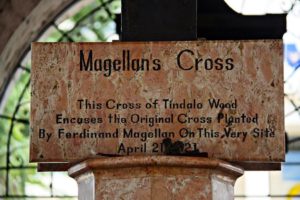 Photo from: https://www.justgola.com/a/magellan-s-cross-320852
Photo from: https://www.justgola.com/a/magellan-s-cross-320852
A trip to the Queen City of the South, Cebu, will not be complete without a trip to the famous historical landmark – Magellan’s Cross. For this reason, when my family and I visited Cebu, I didn’t pass up on the opportunity to visit the said landmark.
Magellan’s Cross is located in the downtown area of Cebu City, on a street aptly called Magallanes St. It is located just beside the Basilica of the Sto. Nino. According to our tour guide, the cross was planted around 1521 by the Spaniards as ordered by their leader, Ferdinand Magellan, when he arrived in Cebu. Though the area is usually bustling and busy, the landmark cannot be missed even from a distance due to its circular shape and its red “salakot”–like rooftop. A salakot is a local wide-brimmed hat that is pointed at the tip. A bit of advice though – to avoid the large crowd, and to have a better chance to do some photo shoot in Magellan’s Cross, try visiting the place not on a Sunday, as Masses are also being held in the nearby Basilica of Sto. Nino during this day. Read More: https://pinoywanderlust.wordpress.com/tag/magellans-cross/
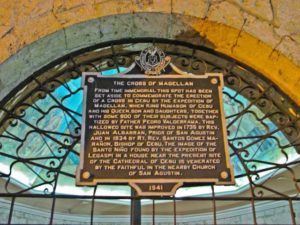 Photo from: https://www.ceburentacar.com/magellanscross/
Photo from: https://www.ceburentacar.com/magellanscross/
Other Photos
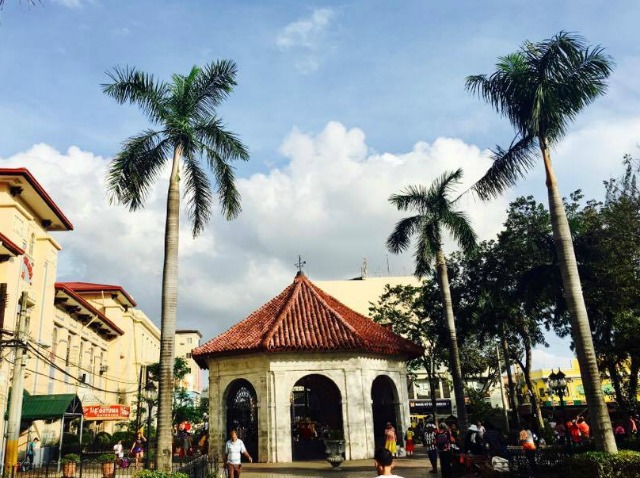 Photo from: https://www.arveesblog.com/2017/02/tourist-attractions-in-cebu-city-cebu-philippines.html
Photo from: https://www.arveesblog.com/2017/02/tourist-attractions-in-cebu-city-cebu-philippines.html
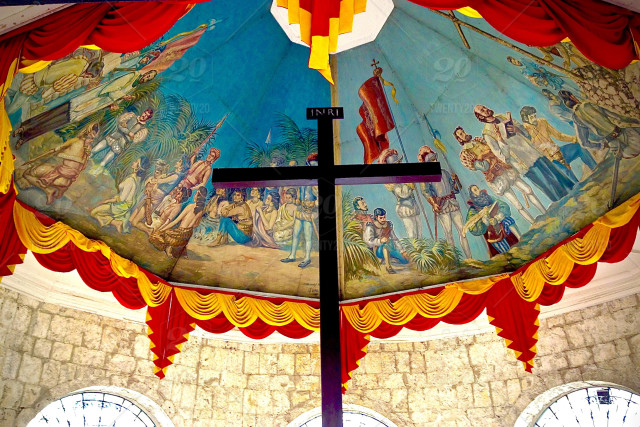 Photo from: https://www.twenty20.com/photos/80a71d12-9ddf-4110-bd07-1e47c141b0d6
Photo from: https://www.twenty20.com/photos/80a71d12-9ddf-4110-bd07-1e47c141b0d6
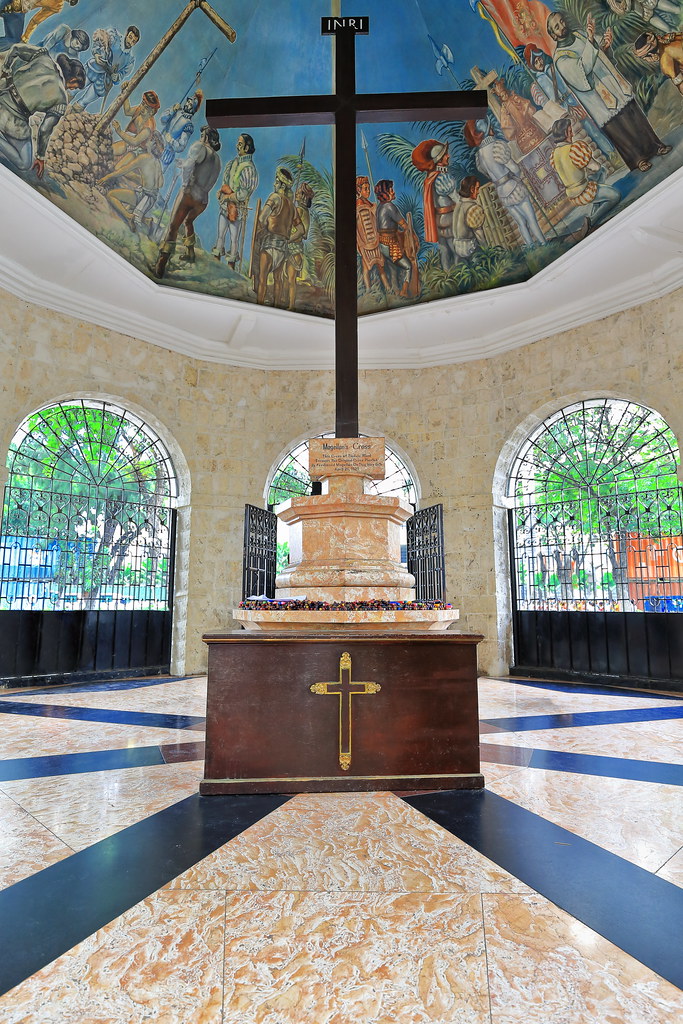 Photo from: https://www.flickr.com/photos/rweisswald/33249942588/
Photo from: https://www.flickr.com/photos/rweisswald/33249942588/
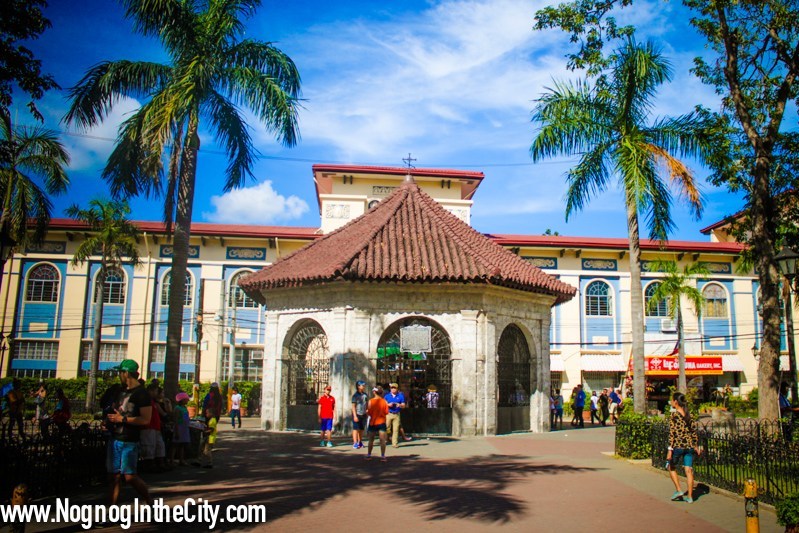 Photo from: https://www.nognoginthecity.com/2015/01/03/sidetrip-magellans-cross-cebu-city/
Photo from: https://www.nognoginthecity.com/2015/01/03/sidetrip-magellans-cross-cebu-city/
Watch the Videos:
TABLE OF CONTENTS
Discover the Majestic Beauty of Cebu
Visit the Top Attractions in Cebu
Colorful and Magnificent Festivals in Cebu
Amazing Islands and Beaches in Cebu
Fun and Exciting Activities in Cebu
Other Visitors Also Viewed:
The Enchanting Libtec Underground River
Best Tourist Attractions in Zamboanga del Sur
Amoingon Beach is Called The Snorkeling Capital of Marinduque
The Magnificent Baliuag Lenten (Holy Week) Procession in Bulacan
Interesting Places to Visit in Siquijor
Join the “Wet ‘n Wild” Regada Water Festival in Cavite
Fun Activities To Do in Romblon

